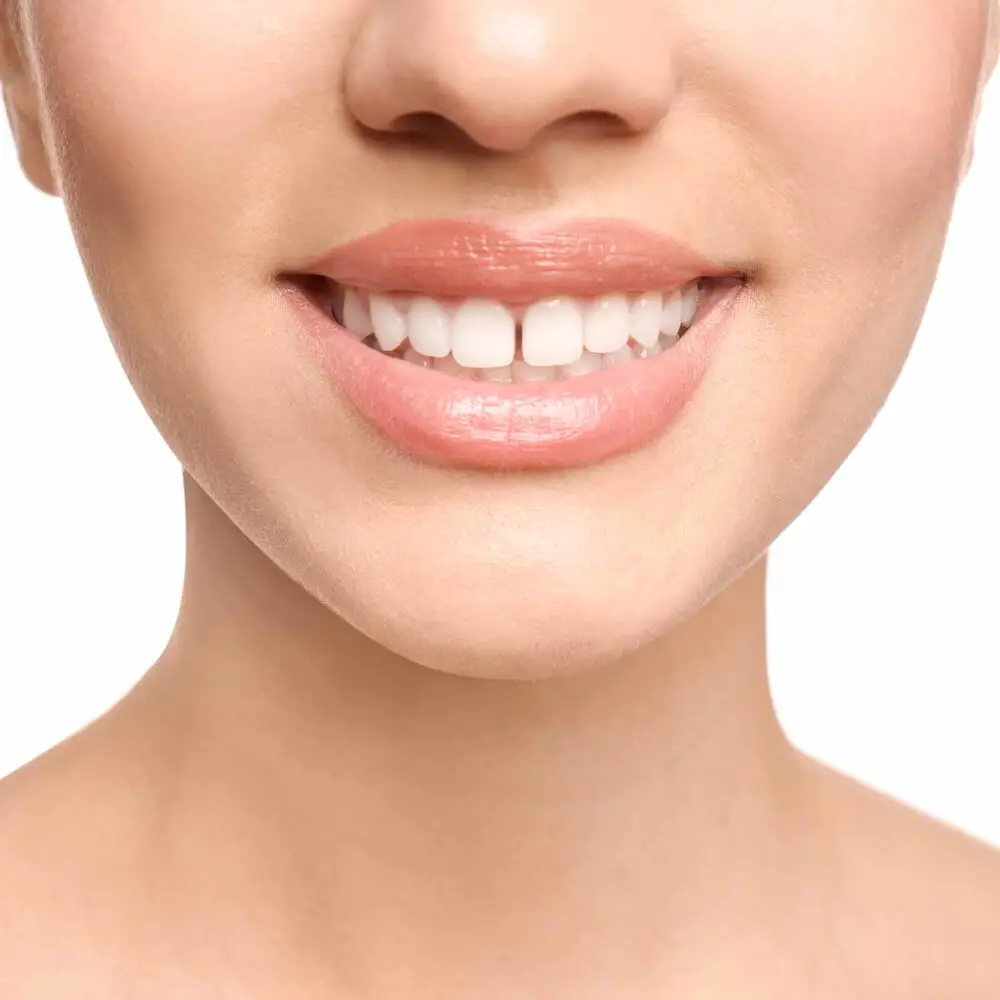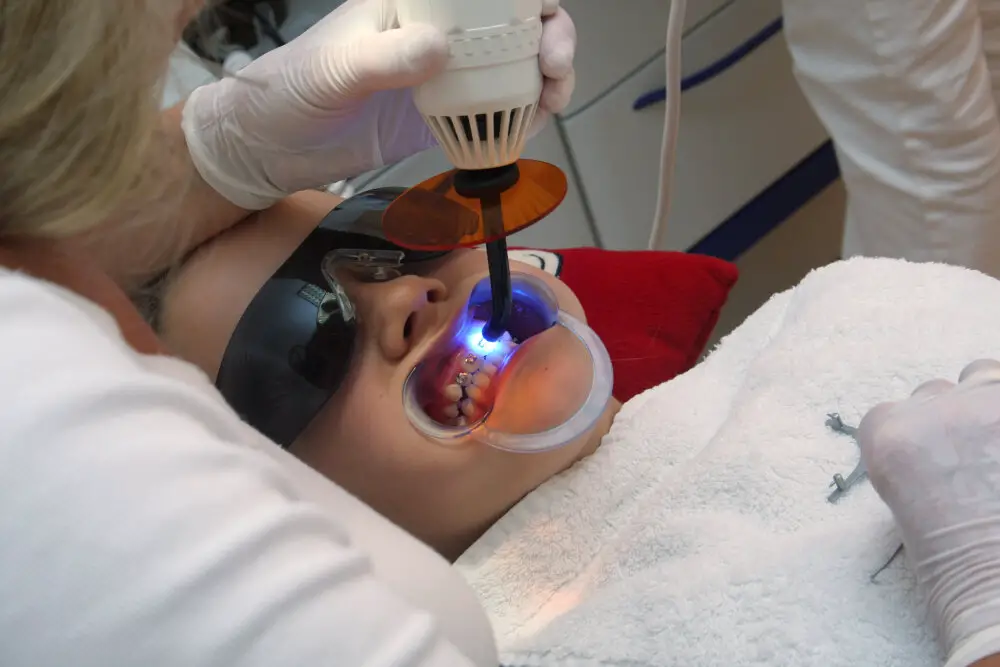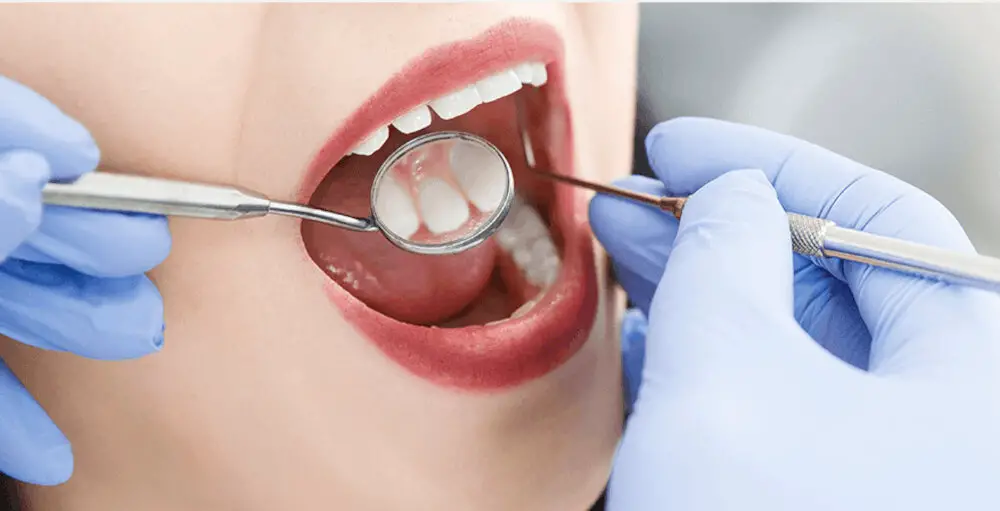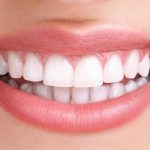Pregnancy and Teeth Sensitivity: When Does It Start and How to Manage It

Pregnancy is an exciting time for most women as they look forward to the arrival of their bundle of joy. However, this journey can also be accompanied by some unpleasant experiences, one of which is teeth sensitivity. Teeth sensitivity is a common occurrence during pregnancy, and it can be quite uncomfortable for many women. The good news is that there are ways to manage this condition, and with the right information, pregnant women can still have a healthy and enjoyable pregnancy. Teeth sensitivity during pregnancy can be caused by a variety of factors, including hormonal changes, increased blood flow, and changes in eating habits. These changes can affect the teeth and gums, making them more sensitive to hot and cold temperatures, sweet and sour foods, and even toothbrushing. If left unmanaged, teeth sensitivity can lead to dental problems such as tooth decay and gum disease. Therefore, it is essential for pregnant women to understand the causes and management of teeth sensitivity to maintain good oral health during pregnancy.
Pregnancy is a unique phase in a woman’s life that brings about significant changes to her body, including her mouth. During pregnancy, some women may experience teeth sensitivity, which is characterized by a sharp, shooting pain that occurs when the teeth come into contact with hot or cold foods or drinks. The reason for this is due to the hormonal changes that occur during pregnancy. The increase in hormones, particularly progesterone and estrogen, can cause an increase in blood flow to the gums, making them more sensitive and prone to inflammation. Additionally, changes in diet and oral hygiene habits can also contribute to teeth sensitivity during pregnancy. To manage teeth sensitivity during pregnancy, it is recommended to maintain good oral hygiene habits, avoid sugary and acidic foods, and use desensitizing toothpaste.
Maintaining good oral health during pregnancy is crucial as it not only ensures healthy gums and teeth for the mother but also has a positive impact on the baby’s health. Poor oral health during pregnancy can lead to various dental problems such as gum disease, tooth decay, and even tooth loss. Furthermore, research has shown that pregnant women with gum disease are at a higher risk of premature birth and low birth weight babies. Therefore, it is essential for pregnant women to practice good oral hygiene habits such as brushing twice a day, flossing daily, and visiting the dentist regularly. By doing so, they can ensure their own oral health and the health of their unborn child.
When Does Teeth Sensitivity Start During Pregnancy?

Pregnancy is a beautiful experience for women, but it comes with its own set of challenges. One of the lesser-known challenges that women might face during pregnancy is teeth sensitivity. Teeth sensitivity during pregnancy can be quite uncomfortable and can make even the simplest of tasks like eating or drinking challenging. Teeth sensitivity during pregnancy usually starts during the second trimester. This is when women start to experience hormonal changes that can affect their oral health. The hormonal changes can cause gums to become more sensitive, leading to gum recession, which can expose the roots of the teeth, leading to sensitivity. Additionally, the changes in hormones can also affect the mineralization of the teeth, leading to weaker teeth that are more prone to sensitivity. Fortunately, there are ways to manage teeth sensitivity during pregnancy. One of the most effective ways is to maintain good oral hygiene. This includes brushing twice a day, flossing regularly, and using a fluoride mouthwash. It is also important to visit the dentist regularly to get a professional cleaning and check-up. Women should also avoid foods and drinks that can trigger sensitivity, such as acidic foods and beverages, and should opt for a soft-bristled toothbrush to avoid further irritation. By taking these steps, women can manage teeth sensitivity during pregnancy and enjoy the experience without any discomfort.
During pregnancy, hormonal changes occur to support the growth and development of the fetus. These hormonal changes affect almost every aspect of the mother’s body, including the teeth and gums. The production of estrogen and progesterone increases, leading to changes in blood flow, metabolism, and immune response. These changes can cause inflammation, bleeding, and swelling of the gums, a condition known as pregnancy gingivitis. Additionally, the increased hormone levels can affect the tooth enamel, making the teeth more sensitive to temperature changes, acidic foods, and sweets. Proper oral hygiene, including brushing and flossing regularly, and visiting the dentist for check-ups and cleanings, can help manage these hormonal changes and prevent any potential dental problems during pregnancy.
Teeth sensitivity is a common problem that affects many people, but for pregnant women, it can be especially frustrating. It’s not uncommon for sensitivity to start during pregnancy, and it may be caused by a variety of factors, including hormonal changes, changes in diet, and increased sensitivity to certain substances. In some cases, sensitivity may be mild and easily managed with over-the-counter remedies, while in other cases it can be more severe and require professional treatment. To manage teeth sensitivity during pregnancy, it’s important to maintain good oral hygiene, avoid certain foods and drinks that can exacerbate sensitivity, and work closely with your dentist to develop an effective treatment plan.
There are several factors that can contribute to an earlier onset of teeth sensitivity. One of the most common factors is pregnancy. Hormonal changes during pregnancy can weaken tooth enamel and cause gums to become more sensitive. Poor oral hygiene habits, such as brushing too hard or not flossing regularly, can also contribute to teeth sensitivity. Additionally, consuming acidic foods and drinks, such as citrus fruits or soda, can wear down tooth enamel and expose underlying nerves. Finally, certain medications or medical conditions, such as acid reflux or bulimia, can also contribute to teeth sensitivity.
How to Manage Teeth Sensitivity During Pregnancy

Pregnancy can bring about numerous changes in a woman’s body, including her oral health. One of the most common dental issues faced by pregnant women is teeth sensitivity. This can be caused by a variety of factors, such as hormonal changes, morning sickness, and changes in diet. Teeth sensitivity can cause discomfort, pain, and even make it difficult to eat and drink. Fortunately, there are several ways to manage teeth sensitivity during pregnancy. One of the most effective ways to manage teeth sensitivity during pregnancy is to practice good oral hygiene. This includes brushing your teeth twice a day with a soft-bristled toothbrush and fluoride toothpaste, flossing daily, and using mouthwash. It’s also important to avoid acidic and sugary foods and drinks, which can worsen teeth sensitivity. Instead, opt for a balanced and healthy diet that includes plenty of calcium-rich foods, such as milk, cheese, and yogurt. Additionally, drinking plenty of water can help flush out harmful bacteria and reduce the risk of tooth decay and sensitivity. By following these simple steps, you can help protect your teeth and manage sensitivity during pregnancy.
Pregnancy can be a challenging time for women, particularly when it comes to their dental health. One common issue that many pregnant women face is teeth sensitivity. To prevent teeth sensitivity during pregnancy, there are several tips that women should follow. Firstly, maintaining good oral hygiene by brushing and flossing regularly can help prevent sensitivity. Secondly, avoiding acidic or sugary foods and drinks can also help reduce sensitivity. It’s also important to have regular dental check-ups and cleanings during pregnancy, as dental problems can worsen if left untreated. Finally, using a toothpaste specifically designed for sensitive teeth can help alleviate discomfort and prevent further sensitivity. By following these tips, women can help prevent teeth sensitivity and maintain good oral health during their pregnancy.
When it comes to dental treatments during pregnancy, safety is of utmost importance. Routine check-ups with a dentist are recommended to maintain good oral health, as pregnancy can increase the risk of gum disease and tooth decay. However, elective procedures such as teeth whitening or cosmetic treatments should be postponed until after delivery. X-rays should only be taken in emergency situations and with proper shielding. Local anesthesia is generally considered safe, but some may opt for natural pain management techniques. It is important to communicate any concerns or medications with the dentist to ensure the safest and most effective treatment plan for both mother and baby.
For those experiencing teeth sensitivity, home remedies can be a great way to manage the discomfort. One popular remedy is oil pulling, which involves swishing coconut oil around in the mouth for several minutes before spitting it out. Another option is using a desensitizing toothpaste that contains potassium nitrate or strontium chloride. Additionally, applying a paste made from baking soda and water to the affected area can help to neutralize acids and reduce sensitivity. Lastly, avoiding acidic foods and drinks, as well as brushing gently with a soft-bristled toothbrush, can also help to alleviate discomfort. By incorporating these simple remedies into your daily routine, you can effectively manage teeth sensitivity and maintain good oral health.
The Importance of Regular Dental CheckUps During Pregnancy

Maintaining good oral health is essential during pregnancy not only for the mother’s health but also for the baby’s. Pregnant women are more susceptible to gum disease due to hormonal changes that occur during pregnancy. Therefore, regular dental checkups are crucial during this time to prevent any dental problems that may arise. A dental checkup during pregnancy can detect any dental issues and prevent them from worsening or causing complications. It is recommended that pregnant women visit the dentist every three to six months to ensure good oral health and prevent any complications. During pregnancy, the body undergoes several changes that can cause dental problems, including gum disease, tooth decay, and enamel erosion. These changes are often accompanied by increased sensitivity, bleeding, and inflammation of the gums. Regular dental checkups can help prevent these problems by identifying and treating them at an early stage. Additionally, maintaining good oral hygiene practices such as brushing and flossing daily can help reduce the risk of developing dental problems during pregnancy. Therefore, it is essential to prioritize regular dental checkups during pregnancy to ensure good oral health for both the mother and the baby.
Pregnancy is a crucial period for both the mother and the child, and maintaining oral hygiene is essential to avoid any dental problems during this phase. Regular dental checkups during pregnancy are crucial to manage teeth sensitivity and ensure healthy gums and teeth. Hormonal changes during pregnancy can increase the risk of gum disease and tooth decay, making it essential to maintain good oral hygiene practices. Regular dental checkups help detect and treat any gum disease or tooth decay early, preventing further damage and ensuring the well-being of both the mother and the child. Additionally, dental professionals can provide guidance on proper dental care during pregnancy and offer solutions to manage teeth sensitivity, ensuring a healthy pregnancy and a healthy smile.
Poor dental health during pregnancy can pose various risks to both the mother and the baby. Gum disease, for example, has been linked to preterm birth and low birth weight, which can lead to developmental problems for the baby. Additionally, the hormonal changes during pregnancy can cause increased sensitivity in teeth and gums, leading to discomfort and pain. Ignoring dental issues during pregnancy may also lead to more severe dental problems that require invasive and potentially harmful treatments. Therefore, maintaining good oral hygiene and seeking dental care during pregnancy is crucial for the health of both the mother and the growing fetus.
Regular dental checkups are crucial in preventing and managing teeth sensitivity during pregnancy. The hormonal changes in a woman’s body during pregnancy can cause a variety of dental issues, including sensitivity. Dentists can identify early signs of sensitivity and recommend treatments to prevent it from getting worse. They can also advise patients on the best oral hygiene practices to reduce sensitivity. In addition, dental cleanings can remove plaque buildup that contributes to sensitivity. By staying on top of dental checkups, pregnant women can maintain good oral health and reduce the discomfort of teeth sensitivity.
The article \Pregnancy and Teeth Sensitivity: When Does It Start and How to Manage It\ provides comprehensive information on the causes and management of teeth sensitivity during pregnancy. The article highlights that hormonal changes during pregnancy can lead to gum inflammation and increased tooth sensitivity. It also provides useful tips for managing teeth sensitivity such as maintaining good oral hygiene, avoiding acidic foods and drinks, and using desensitizing toothpaste. The article emphasizes the importance of seeking dental care during pregnancy to prevent dental problems and ensure the health of both mother and baby. Overall, the article provides valuable information for pregnant women on how to manage teeth sensitivity and maintain good oral health during pregnancy.
Maintaining good oral health during pregnancy is crucial for both the mother and baby. Poor oral hygiene can lead to various dental problems such as gum disease, tooth decay, and tooth loss. These dental issues can cause discomfort and pain for the mother, leading to difficulty in eating and speaking. Moreover, research has shown that poor oral health during pregnancy can also increase the risk of premature birth, low birth weight, and developmental problems for the baby. Therefore, it is essential for expectant mothers to maintain good oral hygiene by brushing and flossing regularly, visiting the dentist for check-ups, and following a healthy diet to ensure the health and well-being of both themselves and their babies.
Conclusion

In conclusion, pregnancy can cause teeth sensitivity due to various hormonal changes and increased blood flow to the gums. It is important to maintain good oral hygiene, visit the dentist regularly, and avoid acidic or sugary foods to manage teeth sensitivity during pregnancy. Using desensitizing toothpaste, rinsing with saltwater, and applying a fluoride gel can also help alleviate the sensitivity. It is essential for pregnant women to take care of their oral health to ensure a healthy pregnancy and avoid any potential complications. By being proactive and seeking professional help, women can successfully manage teeth sensitivity during pregnancy and enjoy a healthy smile.





